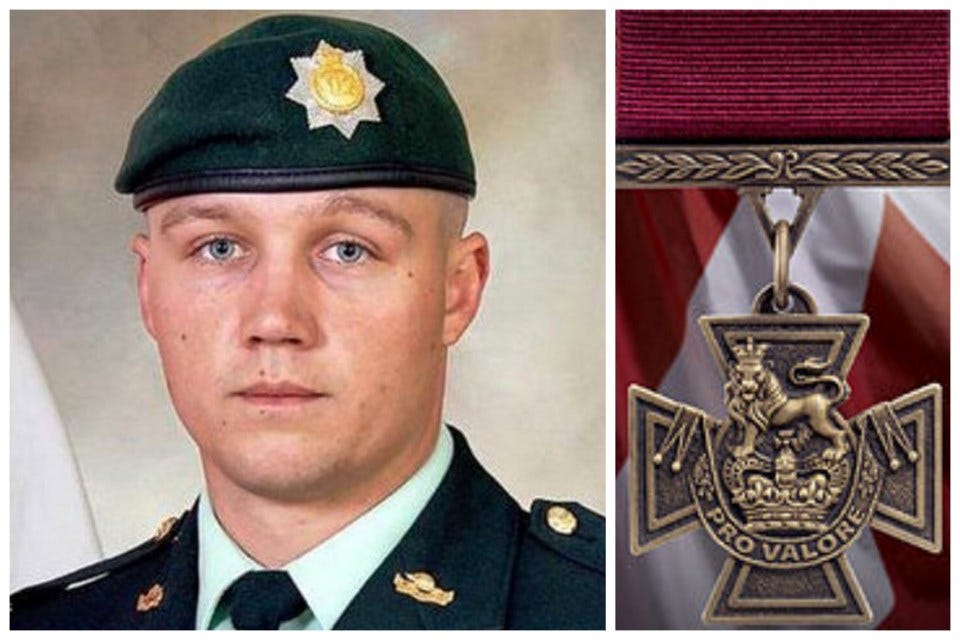Courage - essential fuel for leaders
The importance of leaders having moral courage for the greater good
This is the second editorial in my series of personal reflections on leadership. Leadership and the Citizen should be read first to set the context.
It’s worth noting that my observations on leadership are based on what I believe to be important and how I have tried to lead. I have failed, let myself and others down, and made the same mistakes more than once. With help from many along the way, I got better and became a more capable leader, but never infallible. I try to be better everyday and I hope by sharing these thoughts, your path will be less rocky than mine.
I was not having a good day. I was the Director of Cadets at Royal Military College (RMC) and the morning got off to a bumpy start. I cannot remember the details, but I know I was not my best self. It was a Wednesday morning and this meant professional development for the young officers. On this particular morning I was delivering a session to the second year officers in Currie Hall, one of RMC’s larger venues. As the first group of officers started to filter in, one young officer decided to sit at the back of the hall instead of filling the front seats as was protocol. I could have walked to the back of the hall for a chat, but I simply barked at her to move forward. Although my language was appropriate, my tone and approach was not. As the remainder of the class slowly gathered for the session, this young officer came and spoke to me. She expressed her disappointment in how I addressed her and highlighted how I could have handled it far better than I did. I knew before she even called me out, I had let her and myself down. I opened the session with an apology to her on how I behaved and thanked her for being courageous enough to help me fix my mistake.
Courage is as individually unique as a fingerprint. What is courageous to one person might be pedestrian to another. When I look around for different examples of courage, there is no shortage. For instance, for courage on the battlefield, the name Private Jess Larochelle comes to mind. Perhaps valour is a more appropriate term, but he represents one type of courage. Many Canadians would agree that our national treasure Terry Fox is the definition of courage. Or a variety of historical figures - Gandhi, Nelson Mandela, or Rosa Parks - demonstrate their own version of courage to inspire others to commit to something bigger than themselves. For most people, their courage is not commonly visible in such a public way; however, I believe courage is a fundamental characteristic of a leader and can be seen in the everyday.
When I reflect back on my life, the moments of greatest professional contribution and personal growth were the times when I felt the most courageous. This was not courage in a physical sense, but a in moral one. Having the courage to do what I believed to be right was an integral part of my identity as a leader and my purpose in the military. I never felt I could lead the great Canadians charged with the defence of Canada, or serve in the military, if I lacked the courage of my convictions. My ability to lead and serve in a way that was meaningful to me required me to summon moral courage when needed.
It’s a simple idea - do what you believe is right. Easy to say, but the execution is less so. Exercising moral courage is made difficult by our instincts to conform to the group. This evolutionary impulse kept our ancestors alive - think family kill circle from the movie The Croods. Fortunately, most of the time conformity aligns to doing the right thing - or at least the right enough thing. Unfortunately, when a leader encounters a situation where he or she judges conformity as the wrong thing to do, they face a choice - quietly accept something you don’t agree with or challenge the group.
In my experience, this choice is uncomfortable. Often a decision will be unpopular, or be scrutinized critically by peers or superiors, or it will generate more work as a “path less travelled”. A person needs to be willing to experience and work through the discomfort of those situations. In hindsight, after making these types of these decisions, the feedback I often received was overwhelmingly positive with the common sentiment being, “I wish someone had done this sooner.” This indicated to me that many people shared my sense of what “right looked like”, but few would act on it.
Over the years I developed various approaches to become comfortable with uncomfortable decisions as a leader. Think of this as a checklist to help you make the decision you know needs to be made:
There are three conditions for making a decision and these become increasingly important when the decision does not conform. The decision must be: a) ethically sound, b) be in the best interest of the organization and its people, and c) the leader must be willing to be accountable for the decision.
Despite the best of intentions, some decisions you make will be wrong. It will become clear you made a bad call. If the three previous conditions were met then you have exercised proper due diligence as a leader. There is a right way to be wrong.
The issue needs to actually be important. There are a lot of little irritants and annoyances in the workplace. The vast majority of these do not merit time or effort because they lack real value or meaning. It’s critical to make sure you are challenging the status quo on issues that truly matter to you, your team, or your organization. If you focus on every single issue, then you will run out of energy and credibility. Too many people traffic in hysterics.
You can control your own actions, but you cannot control the reaction of others. People are unpredictable and you cannot always avoid repercussions - warranted or not. The most valuable outcome is having the courage to do what is right, beyond that, you can only hope for the best. This is especially true in the digital age where every decision is litigated in the public domain.
You should have no expectation that anyone will publicly agree with you or support your position, even if you are right. The risk is yours to bear alone. Only you can do the risk versus reward calculation. This is not a trivial calculation since government institutions and companies are quick to condemn, and not bold enough to admit when they’ve made a mistake in judging your actions.
As I noted in my last editorial, Leadership and the Citizen, there is little about leadership that is easy. This editorial is a call to action for leaders to be courageous. Having the moral courage to do what is right will be uncomfortable and will not always result in the outcomes you want. You will let yourself down - as I did at RMC and other times over my career. However, the focus should be on making progress vice expecting perfection. Leadership is a complex, but important, undertaking. It has been defined as closer to art than science. Science has rules, process, and a level of predictability. Art is abstract, uncertain, and emotionally taxing. Just as an artist must put their heart and soul into their art, so must a leader do with their leadership.








Well written Chris. I’ve found admitting when you’ve made a bad decision and taking the action to rectify the situation to be particularly positive for all concerned. It shows integrity and courage to the group
Love it. The words “courage is as unique as a fingerprint” hit home for sure.